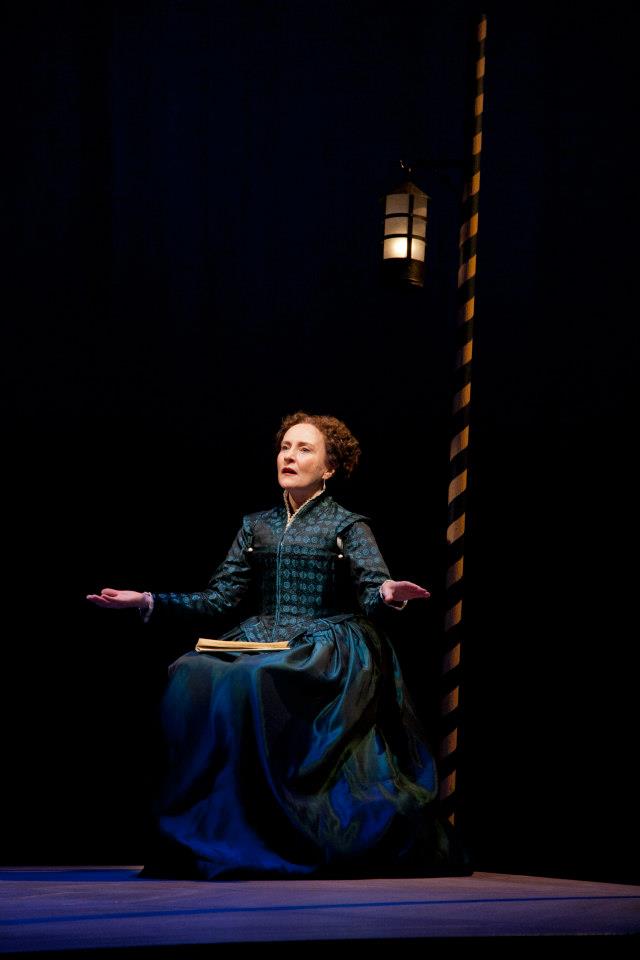
Seana McKenna as Anne Hathaway. Photo by Meghan Moore
by Vern Thiessen
Directed by Miles Potter
Composed by Marc Desormeaux
presented by Merrimack Repertory Theatre
50 E. Merrimack Street
Lowell, Massachusetts 01852
January 10th – February 3rd, 2012
Merrimack Repertory Theatre Facebook Page
Review by Craig Idlebrook
(Lowell) William Shakespeare may have done more than any writer of his time to examine both internal and external human drama, but he ducked the fight when it came to his own family; so goes the premise of Shakespeare’s Will, the taut and layered production now playing at the Merrimack Repertory Theatre. The Bard may get the headlines in the play’s title, but it is his absence that is the singular event that shapes the life of his wife, Anne Hathaway, who is the only character in this beautifully lonely one-woman play. Through the brave performance of Seanna McKenna, we are reminded that even in the shadow of greatness the drama of everyday is enough to create volumes of literature.
The play tells the fumbling courtship, marriage and benign estrangement between Shakespeare and Hathaway, told after Hathaway returns from the Bard’s funeral. They met when he was a nobody and married when she was pregnant. Hathaway suspects that Shakespeare’s heart is elsewhere, and playwright Vern Thiessen theorizes in the script that his propensity for writing female characters with questionable psychological motivations might be because he was homosexual and, in this case, liked to keep women at arm’s length. The two create an open marriage, and Hathaway hopes this will be the mechanism to keep her husband engaged emotionally. Instead, Shakespeare drifts until all that remains of him in the household are terse and occasional letters from the greatest wordsmith of our time. She carries on and ably raises a family with an air of someone who wonders how life turned out the way it did.
McKenna is an engaging and confident storyteller, smoothly shifting from one character to the next as Hathaway relates conversations with others. There is no showiness to her presence on stage, and she makes her Elizabethan character accessible. McKenna is aided by an equally blended and seamless lighting design, created by Kevin Fraser, which shadows her transformation from one character to another or one scene to the next.
The play would feel like a pleasant fireside chat after a long journey were it not for a sense of foreboding that runs like a current throughout the text, as Hathaway refuses to look at her deceased husband’s will. This foreboding may be director Miles Potter’s only misplayed card, as he cannot seem to layer in Hathaway’s moments of real tragedy, and those moments feel more explanation marks than an emotional arc. But this is like the one flaw found in a wonderful tapestry that he and McKenna weave through a textured night of theatre.
